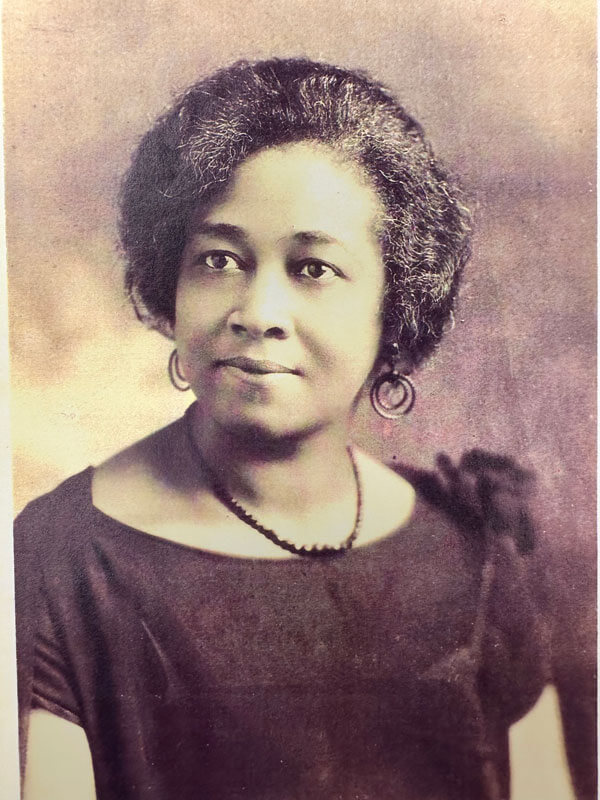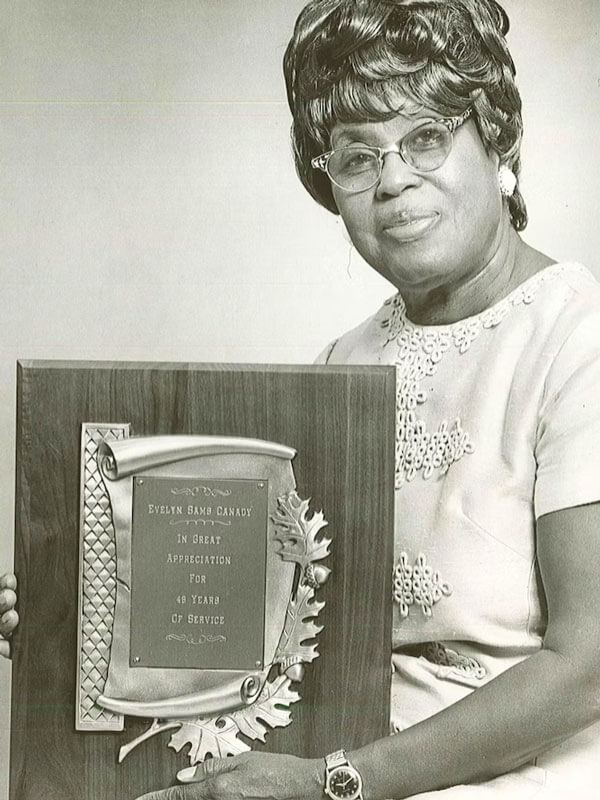Established in 1994, the Lee County Black History Society chose to become a “history society” rather than a “historical society” in order to live, breathe, and grow and to better preserve and commemorate the cultural and educational contributions of both locally and nationally known Black people.
In celebration of Women’s History Month in March, I would like to highlight just a few of the many local women who shaped and continue to influence Southwest Florida and the Black community.
Dr. Ella Mae Piper

Dr. Ella Piper
Piper was a successful businessperson who continued a popular Dunbar event her mother started and left a legacy of support for children and the elderly.
Born Ella M. Jones in Brunswick, Ga., on March 8, 1884, she was the only daughter of Ned Bailer and Sarah Williams. Ella attended Spelman College in Atlanta and graduated from Rohrer’s world-famous Institute of Beauty Culture in New York City on Aug. 25, 1915, majoring in body massage and Swedish movements. She became a well-known chiropodist (foot doctor).
She came to Fort Myers after she graduated in 1915 and opened the first beauty shop on Jackson Street. She also practiced chiropody and owned Big 4 Bottling Company, where customers could get soft drinks for just 5 cents. The current Dr. Piper Center she inspired for the care of children and the elderly is at the former Big 4 site.
Her mother started a Christmas celebration in 1915 for the children of the Dunbar community, which Ella maintained and continues today at the Dr. Piper Center, providing toys to more than 600 children.
Through her community involvement, she assisted in building the Dunbar Community School in 1926, and today the building is an adult education and lifelong learning center. She helped young people earn scholarships to Tuskegee College, often helping fund them herself. When she died in 1954, she left her property to the City of Fort Myers to be used to provide a place for children and the elderly.
Rosalind Blalock
Although the decision Brown v. Board of Education in 1954 ordered schools to be desegregated, that did not happen for decades in Lee County.
In 1963, Rosalind Blalock was a senior at all-Black Dunbar High School. With her eye on a career in medical technology, she wanted to transfer to all-white Fort Myers High School for better science equipment and new textbooks. When she was denied enrollment, her father helped file a lawsuit that continued for 35 years. In 1964, the NAACP filed a complaint in federal court alleging the Lee County public school system operated an unconstitutional racially segregated school system.
The federal court approved a plan in February 1965 to desegregate schools within five years, and in August of that year, Alva Elementary enrolled one Black student and Edison Park Elementary registered two Black children. Lee eventually integrated all its public schools in 1970, but it was not until 1999 that a federal judge finally declared Lee County was offering equal education to white and Black students.
Evelyn Sams Canady

Evelyn S. Canady
In April, the area will see the legacy of Evelyn Sams Canady, who founded the Dunbar Easter parade 79 years ago.
A beloved third grade teacher and an important leader, she helped to found Dunbar High School and the Dr. Ella Piper Center. Her husband, Walter Canady, was a Negro League baseball player.
She created the parade in 1945 to celebrate the Black community’s children during segregation in the city. She created the event so her community could have a parade of its own in response to the Edison Festival of Light, where Black people could participate, but had to march at the back of the parade.
This year’s Dunbar Easter Parade and festival weekend (April 7-9) celebrates faith, community and unity. It begins April 7 with the Dunbar Easter Coronation. The Easter Parade will be 3 p.m. on April 9.
Other notable Black females include Ida S. Baker, the first Black to receive an appointment within the Florida Department of Education, and Veronica Shoemaker, the first Black to serve on the Fort Myers City Council, among many others.
Learn about these inspiring women and many more at the Williams Academy Museum, a Black history museum in Roberto Clemente Park in Fort Myers housed in the 1942 addition to the Williams Academy, the first government-funded school for African American students in Fort Myers. The museum, maintained by the Lee County Black History Society, is dedicated to preserve the cultural and educational contributions by local and nationally known Black people.

